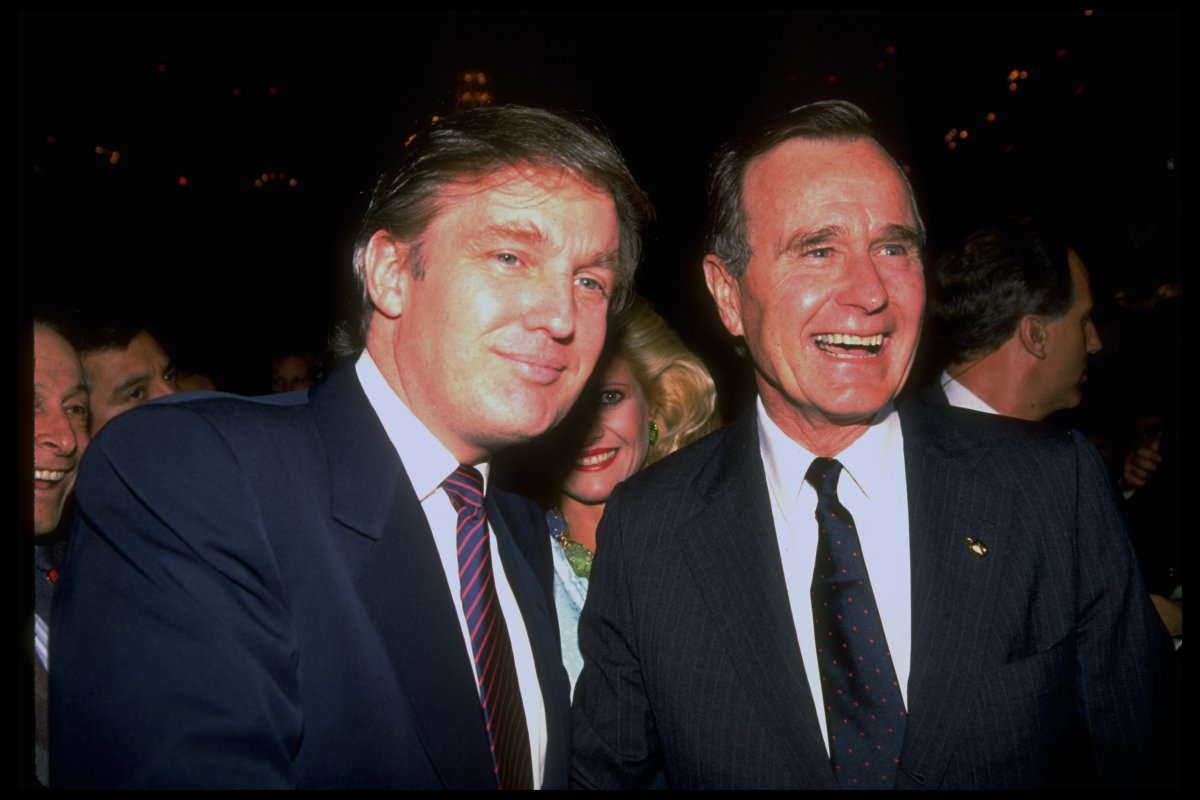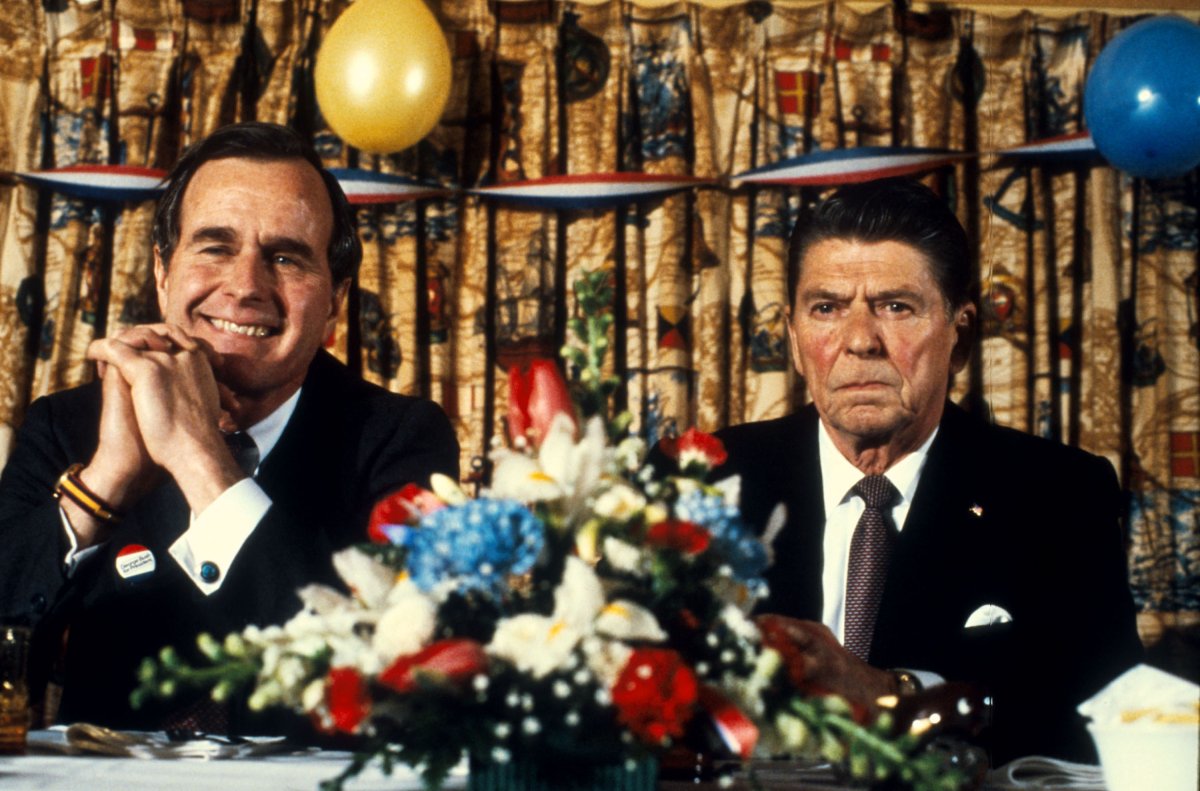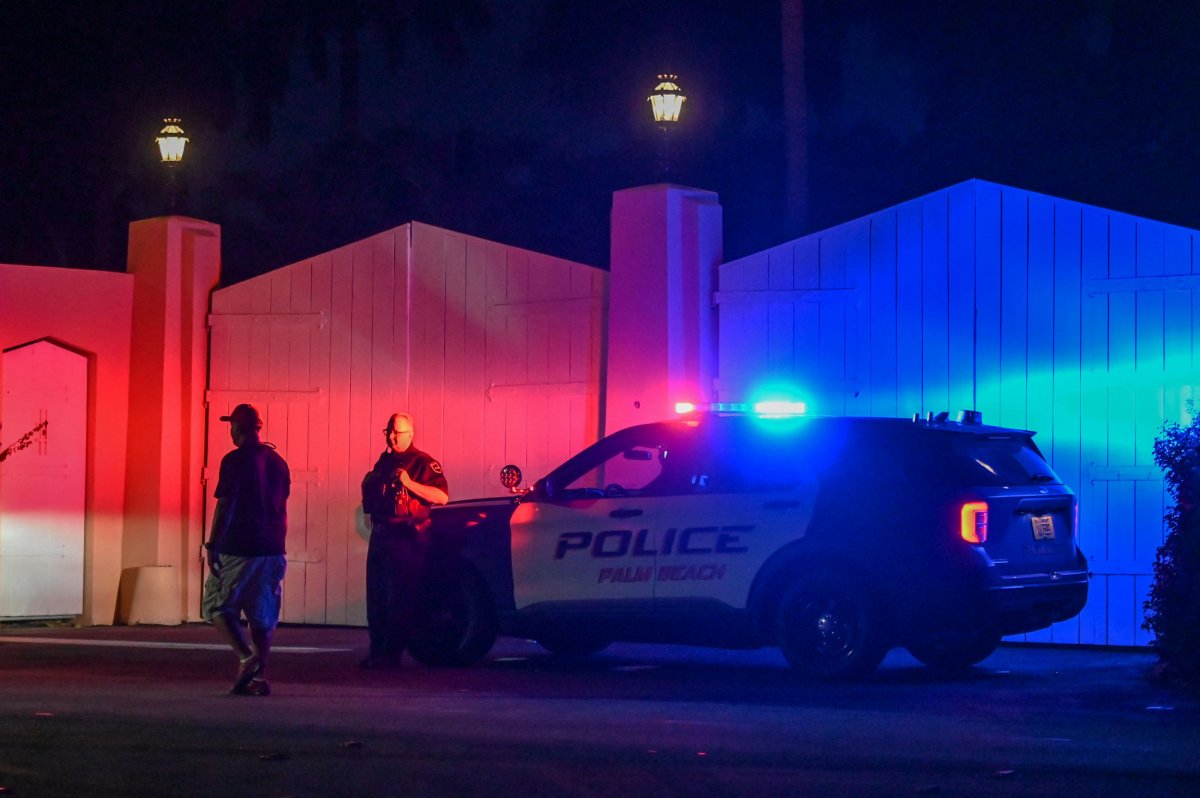Since the Mar-a-Lago raid, Donald Trump has portrayed himself as a victim of institutional and federal persecution.
In early October, the former president alleged the FBI may have planted items at his Florida home, having previously accused the bureau of running a "corrupt" investigation and calling the matter a "hoax."
During a recent post on his Truth Social platform, Trump dug into the archives of presidential history to demonstrate the unfairness of his treatment—as he sees it—compared to other U.S. leaders.

The Claim
A post by Donald Trump on Truth Social dated October 4, 2022, provided a link to a 1993 New York Times report on the loss of White House computer tapes during "the waning hours" of George H.W. Bush's presidency.
Inferring a link between the story and the FBI raid of his Mar-a-Lago home, Trump alleged that "tapes from George H.W. Bush and Ronald Reagan administrations [...] were lost after having been ordered preserved by a federal judge" in 1993, alongside White House hard drives that were "damaged by sloppy handling."
Trump also argued that Bush Sr., unlike him, had been given "exclusive control over all Presidential information" by the National Archivist.
"Compare that to how unfairly and illegally the 45th President, me, has been treated!" Trump added.
The Facts
Without any prior knowledge or context about the stories to which Trump is referring, his Truth Social post may be confusing. Even with that knowledge, it is still hard to unpick.
In essence, Trump appears to be drawing a comparison between the raid on his Mar-a-Lago home and an unrelated story from 1993 about the mishandling of computer data held under the possession of George H.W. Bush.
Referring to the 1993 story, Trump alleges that Bush was given "exclusive legal control over all Presidential information," a privilege he suggests was denied to him in the events leading up to the Mar-a-Lago raid.
However, to understand what really happened and what relevancy (if any) it has to Mar-a-Lago requires looking back further than 1993, into a scandal that spanned over almost a decade and intersected with the Iran-Contra affair, which in turn linked the White House to Iranian terrorists and paramilitaries in Nicaragua.
Much of the detail is available from the National Security Archive (NSA), a non-governmental research institute based at George Washington University, which was instrumental in ensuring the proper handling of electronic White House documents.
In 1982, the White House was given early email prototype software that was eventually installed across all its computers. At the time, there was little precedent to establish that emails should be protected in the same way as other White House documents.
This is crucial, as in 1986, John Poindexter and Oliver North, indicted for their role in the Iran-Contra affair, shredded more than 5,000 email notes stored in memory banks on White House computers.
Backups of the notes were recovered and later reprinted by the presidential commission that investigated Iran-Contra. The email notes provided significant detail to the story behind the affair and led to changes in the handling of electronic White House data.
In 1989, following a lawsuit against former President Ronald Reagan by the NSA, a U.S. district judge issued a temporary restraining order prohibiting the destruction of email notes, as investigations into U.S. dealings with Iranian terrorists and the Nicaraguan Contras continued.
That same year, another U.S. District Judge, Charles Richey, ruled there was standing to sue the now-incumbent president Bush to ensure that emails had similar protections to other White House documents.
In 1993, Richey made a ruling to this effect, that computer tapes with email messages from the Reagan and Bush administrations were to be protected.
Richey also issued court orders requiring the Bush White House to preserve computer records, sharing with the press his suspicions that the administration was planning to destroy email files.
Despite Richey's ruling, in the final hours of his presidency, Bush signed a secret agreement with the then head of the National Archives and Records and Administration (NARA), Don Wilson, granting him control of email tapes.
Several sets of tapes, ordered preserved, were subsequently lost, erased, or damaged.

This is what Trump refers to when he talks about "sloppy handling" and the misplacement of tapes ordered by a judge.
It wasn't until 1995 that Richey declared the agreement between Don Wilson and Bush as null and void, and that all of the records, including 5,000 mainframe magnetic tapes and more than 140 hard drives, would remain the property of the National Archives.
Richey said the agreement between Bush and Wilson was "arbitrary, capricious, an abuse of discretion, and contrary to law," adding: "No one, not even a president, is above the law."
With this history now in mind, it's clear how misleading Trump's retelling of these events and their relevance to the Mar-a-Lago raid is.
It's true that computer tapes were lost damaged or erased, despite Richey's preservation order.
NARA's Wilson also gave Bush control over email tape, this being the "exclusive legal control" that Trump referred to in his Truth Social post.
However, as we've discovered, Wilson's order was without precedent (given the relative novelty of digitally stored information at the time), was later nullified, and was described as "contrary to the law."
Furthermore, it wasn't an exclusive privilege over "all Presidential information" that Trump appears to believe he was denied.
For further context, Newsweek spoke to Tom Blanton, the executive director of the National Security Archive and the author of 1995's White House e-mail, which chronicled the email story.
Blanton said that Trump's claim that Bush had exclusive control of "all Presidential information" was wrong and that the deal with Wilson was "only for e-records and hard drives, with the issue of whether email was a record or not still subject to litigation."
"The e-records Bush tried to take were in small part pertinent to the ongoing Iran-contra investigations [which predates his presidency], while the records Trump took were apparently just souvenirs," he added.
"It was Trump's taking that led to a criminal investigation.
"Also, the Wilson agreement in 1993 patently violated the Presidential Records Act (PRA), was promptly declared null and void by the courts and (unlike Mar-a-Lago) the e-records were not sent to Bush's home, but to a NARA facility in Texas and were never personally held by Bush.
"The deal was done by White House counsel Boyden Gray to contravene PRA, while for Trump his White House counsel apparently were trying to conform to PRA.
"There was (also) no year and a half gap where Bush held the e-records in an unsecured location."

Newsweek also spoke to a number of other experts about the comparison, including Robert Fisher, a partner at law firm Nixon Peabody LLP with more than 15 years' experience in federal and state prosecution.
Mr Fisher said: "It seems like the missing information here was prior to the feds having tight controls and procedures for electronic records.
"Thus, it's tough to compare to the hard copy materials found at Mar-a-Lago. I have a feeling that almost every administration deals with 'missing' and misplaced materials following their terms."
Peter Zeidenberg, a partner at Arentfox Schiff LLP who worked as a federal prosecutor at the DOJ for 17 years, added: "These are not remotely similar situations.
"In one case, some tapes may have been inadvertently erased.
"In the other, Trump took two dozen boxes of Presidential records, including hundreds of the most highly classified documents that the government has, and refused to return them even when they were subpoenaed."
Mark Osler, another former federal prosecutor and now a professor at the University of St. Thomas School of Law, added: "There's no doubt that the incident regarding the Bush Sr administration was disturbing, that's why it was in the New York Times.
"But, there didn't seem to be any evidence of an identifiable act by anyone to hide or scrub information.
"With Trump's hiding of documents, there is—the act of taking them to Mar-a-Lago, the lawyers misleading statements about them, etc. When we look at crimes, that action is an element that must be proven to support the probable charges."
It's worth noting too that while Trump remarked about the sloppy handling of the Bush computer tapes, the warrant of Mar-a-Lago cited three potential violations of federal laws to prevent "removal or mutilation", "losing" and "destruction, alteration" of records in Federal investigations.
This would suggest that while the Bush computer tapes were lost or damaged in 1993, authorities believe the same mishandling may also be true of Trump.
In any case, it appears that Trump has gravely misunderstood or mischaracterized the Bush email scandal and drawn a weak comparison with the ongoing federal investigation into his mishandling of classified government documents at Mar-a-Lago.
Newsweek has contacted Trump for comment.
The Ruling
Misleading Material.

Donald Trump's comparison between the Mar-a-Lago raid and the George H.W. Bush email scandal is misleading.
Bush Sr. was not given "exclusive control over all presidential information"; indeed, the only agreement was for electronic material, an agreement that was later deemed "null and void" by the courts. It was not a special presidential privilege denied to Trump.
The "sloppy handling" of electronic records happened during an era in which the protections around such records had not yet been competently established in law.
FACT CHECK BY Newsweek's Fact Check team
Uncommon Knowledge
Newsweek is committed to challenging conventional wisdom and finding connections in the search for common ground.
Newsweek is committed to challenging conventional wisdom and finding connections in the search for common ground.
About the writer
To read how Newsweek uses AI as a newsroom tool, Click here.








